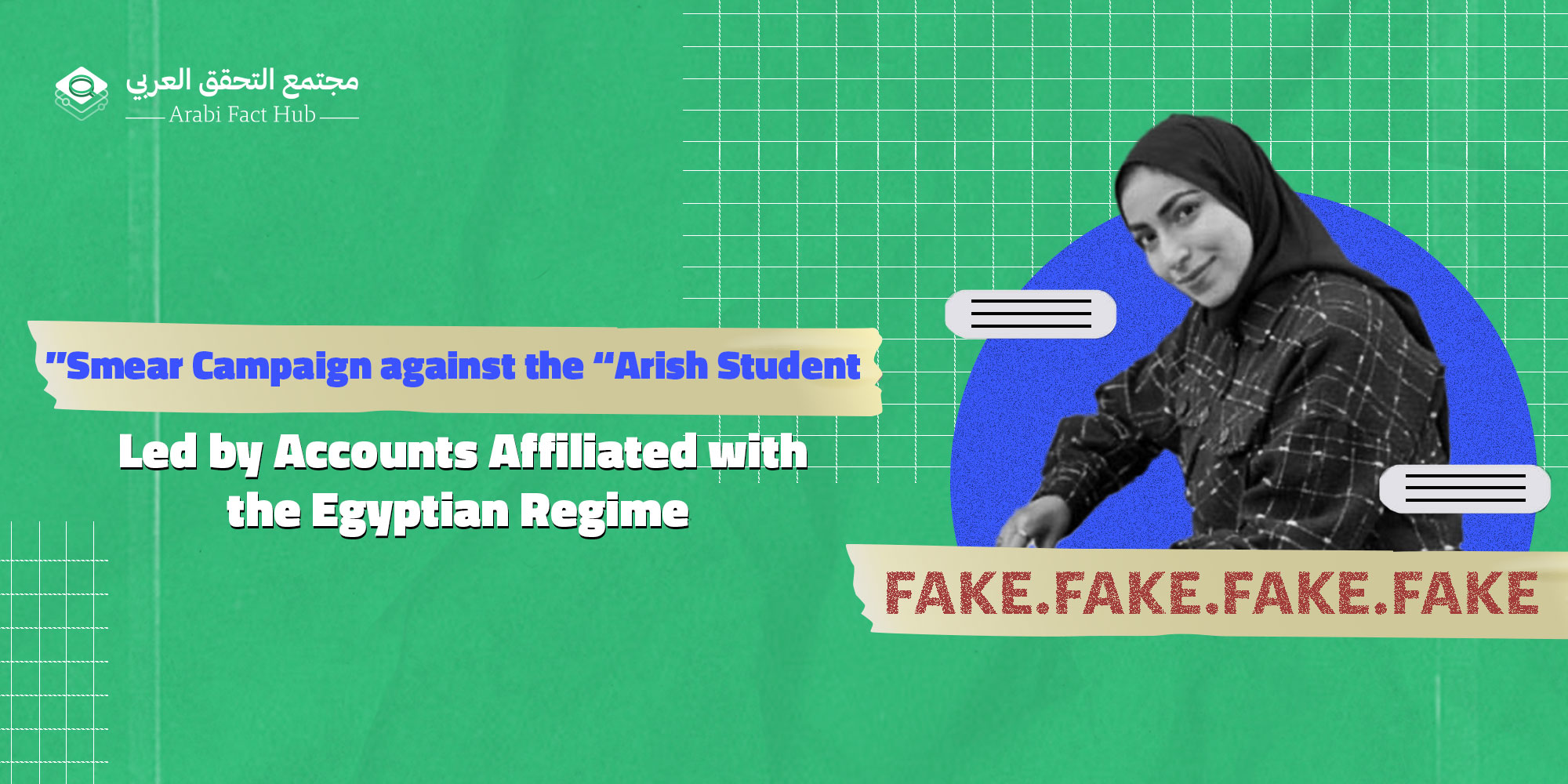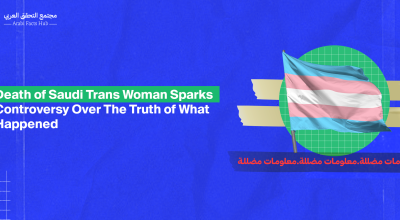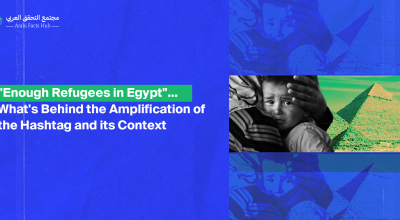Smear Campaign against the “Arish Student” Led by Accounts Affiliated with the Egyptian Regime

A coordinated smear campaign against Nayera El Zoghby, the deceased Arish University student, relied on at least 100 fake accounts. This came after accusations against two individuals, one of whom was her dorm mate, the daughter of a police officer who was temporarily suspended by the Ministry of Interior while the case is being investigated.
The campaign attempted to tarnish the student's reputation by promoting misleading information. But an announcement by the Public Prosecution that it will investigate the dissemination of false news about the incident led to the suspension of the accounts involved in the campaign, while others disappeared.
Nayera El Zoghby (19), a veterinary medicine student at Al Arish University, lived with her family in the Dakahlia Governorate in Egypt’s Nile Delta. At the end of February, the young woman took her last breaths at Al Arish Hospital, after she was taken there in a state of severe exhaustion. Her death sparked public outcry, with speculation increasing about the nature of her demise, prompting the Public Prosecutor's Office to launch an investigation.
Nayera’s family rejected allegations of her suicide by "poisonous pills" and demanded an autopsy. Their lawyer claimed she was "poisoned," but the Public Prosecutor's statement indicated she had indeed bought "3 pills," without specifying if she consumed them, while the results of a forensic report are pending.
On February 28, the hashtag #JusticeForAlArishStudent gained traction, with screenshots from a student WhatsApp group showing exchanges that included what could be considered extortion and threats from a female and a male student, as well as suggested dates for voting on whether to publish Nayera's private photos.
Subsequently, the Public Prosecutor ordered the detention of a student - whose father, a police officer, had been temporarily suspended from work by the Ministry of Interior - along with another student affiliated to her. They were accused of "threatening to expose private matters concerning the victim's life (a felony), and infringing upon the victim's privacy (a misdemeanor)." The Prosecutor noted that Nayera had faced "psychological pressure" before her demise.
Meanwhile, the hashtag #Nayera's_Colleagues_Reveal_Her_Truth surfaced, initially generating at least 600 posts and amassing a minimum of 116,000 views by 7 a.m. on March 3rd. According to Meltwater, a prominent social media analytics company, 52.1% of the posts were retweets or reposts.

Interactions on the hashtag #Nayera's_Colleagues_Reveal_Her_Truth - Meltwater
Mysterious Post... What Does the Campaign Content Say?
Targeted defamation campaigns follow a similar pattern, the most prominent of which is relying on screenshots of posts from anonymous accounts on social media platforms, or utilizing a snapshot of an article published on a website about the targeted individual or entity, sometimes with the website itself being part of the campaign if it is widespread. The goal is typically to give a sense that there is another widely accepted opinion that or to give credibility to the published content, and disrupt the prevailing narrative.
The first described pattern emerged during the smear campaign against Nayera. The campaign used participating accounts to capture a single shot of a mysterious post, seemingly temporarily posted from a facebook account, until the engineered snapshot is obtained, before it is deleted or hidden. The snapshot does not display the name of the post's author, but its message was conveyed from Facebook to X. The message was then magnified, and the counter-defamation campaign built upon it.
The post contained misleading information about the student, alleging that she committed suicide, and claimed that there were conversations between her and a delivery worker. It also claimed that the authorities arrested the worker, while no authorities announced the arrest of any delivery worker or an investigation concerning that in the case. Nayera’s family also denied that she had any conversations with that individual.
After the hashtag launched in the counter-campaign gained momentum, the Public Prosecutor issued a statement announcing an investigation into "the dissemination of false news likely to disrupt public security and instill fear among people." Following this statement, the content of the accounts involved in the campaign swiftly vanished from the #JusticeForAlArishStudent hashtag. However, we managed to obtain archived copies of the posts on Meltwater, identifying those with the highest interactions.
In an attempt to emulate real individuals, accounts engaged in defending Nayera’s roommate, who was implicated in the case. Their posts stated: "The matter has no connection to her roommate," "We urge people to speak the truth so it can be presented to the Prosecutor," "Nayera took her own life because... of her friends, and her roommate was not involved," "Everyone should share so we can bring the truth to the Prosecutor and expose the injustice," "Her university colleagues should come forward and reveal the truth," and "We hope students from Al Arish University who know the truth will speak up, enough with the injustice."
Multiple Smear Campaigns
Arabi Facts Hub documented the presence of at least 100 fake accounts that participated in the initial hours of the emergence of the hashtag #JusticeForAlArishStudent on X. We maintain a database with identifiers and handles associated with these accounts. The accounts were established in the years 2021, 2022, and 2023, with some newly created as recently as January of this year. They typically feature images sourced from the internet. The timestamps of the accounts' activity on the hashtag reveal a striking resemblance in the timing of post publications, leading to a strong indication of an automated system which manages, schedules, and feeds these accounts with messages.

A Short List of Fake Accounts Participating in the Campaign to Defame the Al-Arish Student - Meltwater
Accounts started restricting their content from public view following a statement from the Public Prosecutor where it ordered an autopsy of the student's body, warning against the 'spreading of false news' and announcing its intention to investigate. This led to the disappearance of hashtag content, with some accounts also vanishing altogether.
- The suspicious account "Nada Saleh" resurfaced in the counter-campaign for Al Arish student, as well as in the hashtag demanding justice for her, albeit with cryptic posts criticizing "trend slaves" and "people trying to ride the trend with lies and deceit.
-
-

- The account @eldarddery also stood out, as one of the accounts which restricted their content during the campaign against Nayera. The account is notorious for its prolific engagement in phishing campaigns and online harassment directed at media personnel, journalists, lawyers, activists, and human rights advocates.


























